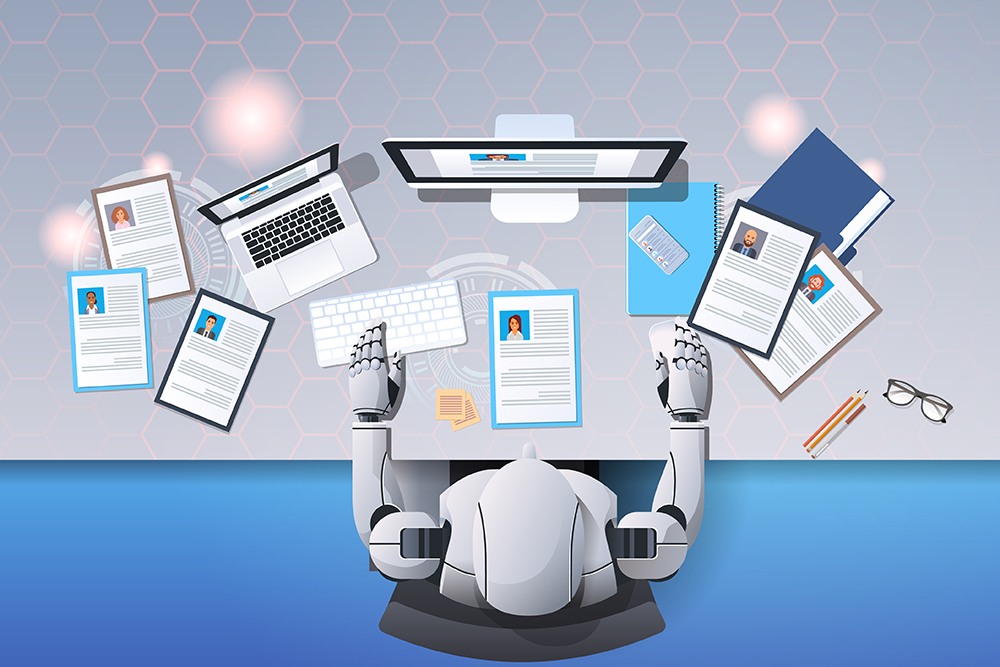There have always been gatekeepers in the job application process. Applicants might be afraid that a résumé screener sitting at a desk will discard their application because of an errant typo. Or, jobseekers in the first round of an interview with a company may feel like the HR recruiter just doesn’t seem to like them.
These individuals, who will have little impact on the day-to-day work and career development of the ultimate hire, serve as a barrier that prevents potentially great employees from getting seen by those who actually will be working closely with them.
Technology as Gatekeeper
Increasingly, however, these recruitment gatekeepers aren’t human beings sitting at a desk but are rather an algorithm or artificial intelligence (AI) program. And those who help new workforce entrants and recent graduates find work are taking note of this growing trend.
“At schools such as Duke University, Purdue University, and the University of North Carolina at Charlotte, career counselors are now working to find out which companies use AI and also speaking candidly with students about what, if anything, they can do to win over the algorithms,” writes Rachel Metz in an article for CNN Business.
Metz points to increasing use of tools such as HireVue to help companies fill positions they typically receive a high level of applicants for—in this case, through video interviews.
Companies have long used algorithms and computer programs to weed out candidates based on experience level, job skills, and other factors that can be easily gleaned from uploaded résumés, cover letters, and LinkedIn profiles. But Metz writes that applications like HireVue, which records applicant responses to prerecorded questions on camera, analyze details like words and grammar, facial expressions, and vocal inflections to gauge characteristics such as tenacity, resilience, and teamwork.
And there are a lot of unknowns regarding how these AI tools work—not just for applicants but even for the companies that use them in their recruiting process. After all, hiring companies didn’t build the algorithms themselves, and the companies that did are tight-lipped about how they work.
Should AI Be Regulated?
Metz points to a current lack of regulations on providing transparency into the process so applicants know whether they’re being evaluated by a person or a bot. It’s just one more layer of anxiety added to what is already, for many, a very anxiety-laden process.
The use of AI has exciting potential in a vast range of applications. As applied to the recruitment space, its use is causing anxiety among applicants and job counselors, who don’t have a solid grasp of what the algorithms want to see.
For recruiters, there are a number of outstanding questions, as well, including how well the programs are at evaluating applicants and if they are even evaluating them for the right skills and favoring the right candidates. In addition, as Amazon found, there is the potential for discrimination when using this type of technology.
While AI can certainly save time, HR leaders need to carefully consider the potential for unintended consequences when using new tech tools in their hiring processes.

